Who we are
Allow us to introduce ourselves!
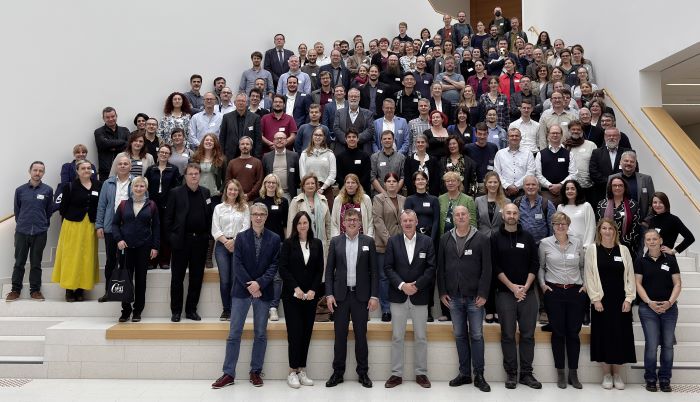
NFDI4Objects addresses everyone who is professionally or privately involved with the cultural heritage of 3 million years of human history and at the same time wants to participate in the digital transformation of and solutions for research data management. The organisation of research data according to the FAIR principles is our central concern. The aim is to ensure that research data is more effectively collected, organised, secured in the long run and made accessible to other researchers. This allows data to be used multiple times, which improves research and makes it more efficient.
Our community
Our community in NFDI4Objects consists of interested individuals of all scientific disciplines in the field of material culture and object studies. The participation of all experience and career levels is explicitly welcome.
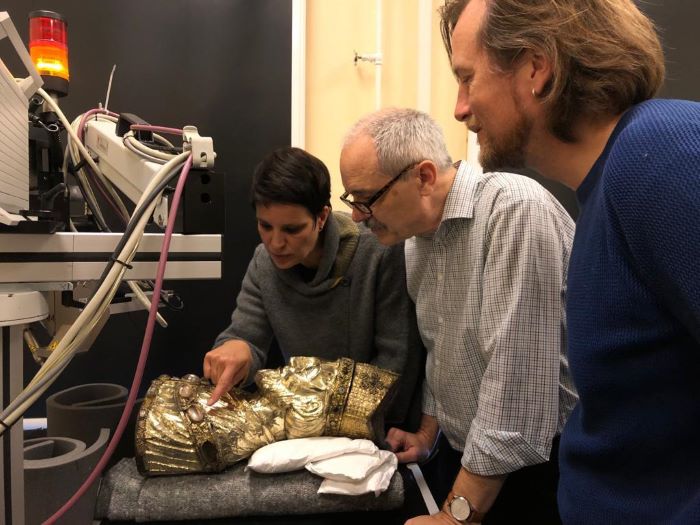
These disciplines include not only the various archaeologies (such as Egyptology, Classical, Near Eastern, Prehistoric and Protohistoric, Medieval and Modern Archaeology and others), but also Archaeological and Historical Building Research, (Palaeo-)Anthropology and Palaeopathology, Ethno- and Geoarchaeology, Archaeobotany, Zoology, Genetics, Physics, Archaeometry, Conservation, Restoration and Provenance Research. The specialised disciplines have strong interdisciplinary links and use processes that generate extensive digital data. Museums, archives, libraries and state heritage offices are just as much a part of our community as universities, colleges, academies and other research institutions as well as professional associations and specialist firms.
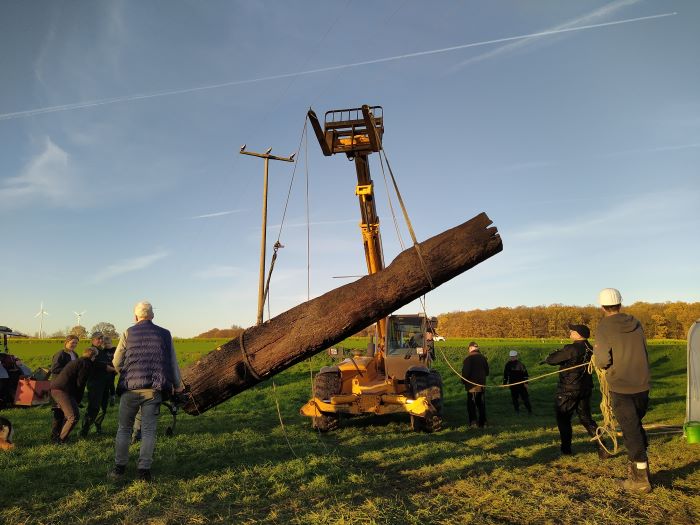
The NFDI4Objects consortium is not only focused on objects, but also looks at their (changing) contexts. This includes all traces of human activity, such as mobile and immobile artefacts, human, animal and plant remains and anthropogenic landscapes. The data ranges from excavation and collection documentation on archaeological finds and features to landscape surveys and analyses or laboratory-based analyses of past human activities.
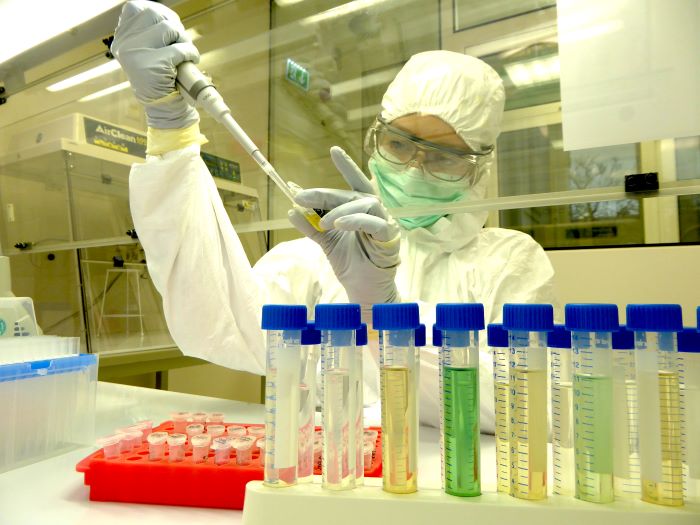
Members of the consortium
NFDI4Objects is funded by the Joint Science Conference (GWK) on the basis of the Bund-Länder-Vereinbarung (BLV) (Federal-Länder Agreement) on the National Research Data Infrastructure (NFDI). The NFDI4Objects consortium unites over 70 institutions that are actively collaborating on research data management relating to the material heritage of mankind. Together, these institutions have given - within the framework of the guidelines of the German Research Foundation (DFG) - the NFDI4Objects consortium structures that enable effective implementation of the work programme.
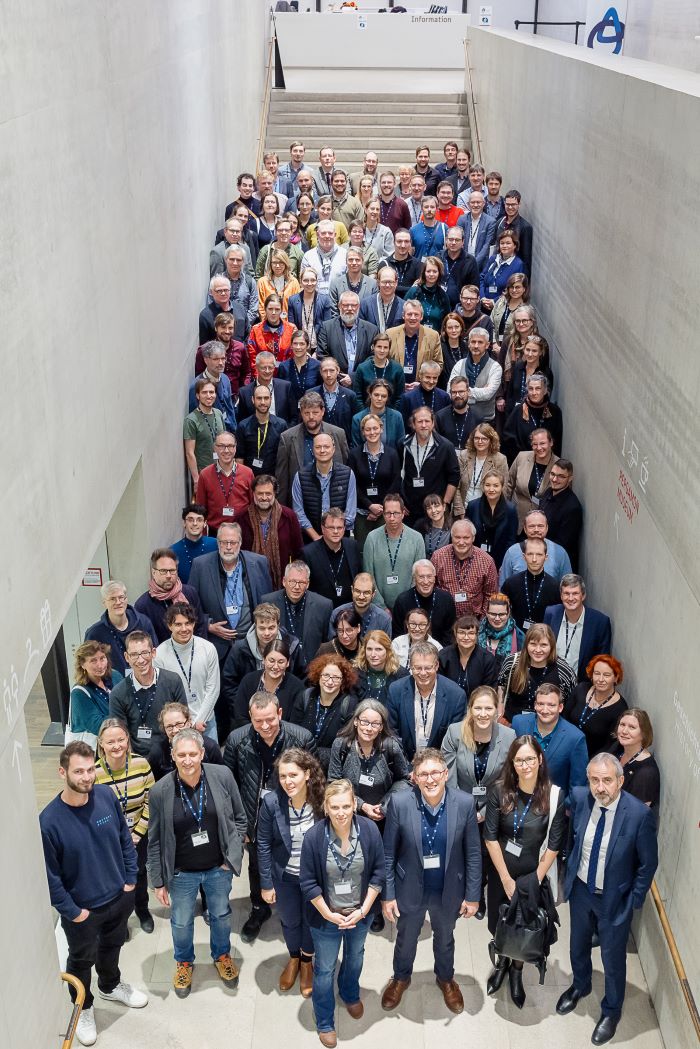
Applicant Institution
One institution within a consortium is the main applicant and manages the administrative processes. For NFDI4Objects, the German Archaeological Institute in Berlin assumes this function. The Applicant Institution also provides the spokesperson of the consortium in accordance with the Federal-Länder Agreement (BLV).
Co-Applicant Institutions
Together with the Applicant Institution, Co-Applicant Institutions take over primary responsibility for the implementation of the NFDI4Objects work programme and provide the community with an overarching administrative and technical infrastructure for successful collaboration. The Co-Applicant Institutions shoulder responsibility for at least one Task Area and are represented by persons (Co-Applicants) who, together with the spokesperson, form the Steering Committee.
Participating and Supporting institutions
In addition to the applicant institutions, there are Participating Institutions that also take on tasks in the work programme. Participating or Supporting Institutions, hereinafter referred to as Participants, actively contribute to the NFDI4Objects work programme and network on many levels. They provide their expertise and contribute to the development of the technical infrastructure and software.
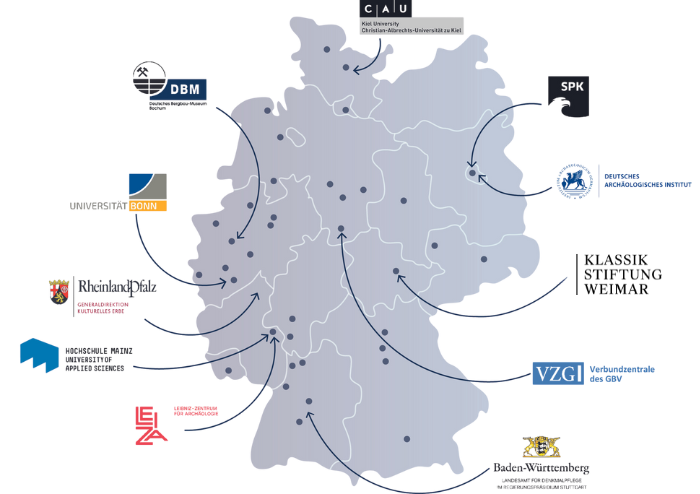
Become part of NFDI4Objects!
Institutions that are not yet involved in NFDI4Objects can be affiliated as a Participating or Supporting Institution if they are interested. If you are interested please contact our Helpdesk. Your institution can also become a member of NFDI e.V.
Bodies of the consortium
NFDI4Objects is organised into six different bodies:
Spokesperson
The spokesperson for NFDI4Objects is Philipp von Rummel (German Archaeological Institute). As such, he manages the administration of the consortium and chairs the Steering Committee. As spokesperson, he and the DAI are accountable to the DFG for the proper administration and utilisation of funds. He moderates all decision-making processes within the Steering Committee and chairs the General Assembly. His elected deputy (in accordance with the statutes of the NFDI e.V.) is Kai-Christian Bruhn (Mainz University of Applied Sciences).
The spokesperson is supported by the Co-Spokespersons of the consortium. They are responsible for the work packages of the Co-Applicant Institutions in their respective Task Area and thus fulfil supervising tasks.
General Assembly
The General Assembly (GA) is the central decision-making body for the strategic development of NFDI4Objects. It consists of one delegate each from a member of the consortium and the professional associations that support NFDI4Objects. The General Assembly decides, among other things, on the admission of new Participating and Supporting Institutions, the composition of the Advisory Board or the admission of new contributions to the NFDI4Objects-Commons.
Advisory Board
The Advisory Board (AB) consists of ten external specialists from Germany and abroad and advises NFDI4Objects both strategically and in terms of content matters. In this way, the members contribute national and international perspectives to the strategic development of the consortium.
You can find an overview of the current Advisory Board members on our portal.
Steering Committee
The Steering Committee (SC) brings together the Spokesperson and the Co-Spokespersons of NFDI4Objects. The committee monitors and evaluates the progress of the work programme, manages the budget and implements the strategic development and future direction of the consortium.
An overview of the current members of the Steering Committee can be found in our portal.
Coordination Office
The Coordination Office (CO) provides administrative support to the consortium in decision-making processes and the organisational implementation of the work programme. To ensure close ties between individual institutions and Task Areas, the positions of scientific coordinators are anchored at the Co-Applicant Institutions. They are responsible for individual Task Areas and take on cross-sectional tasks within the consortium. The Coordination Office is chaired by the scientific director Christin Keller at the NFDI4Objects office at the German Archaeological Institute.
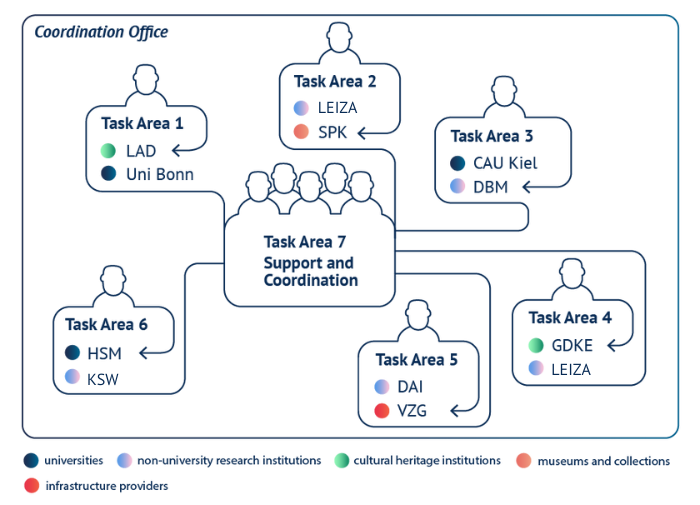
An overview of the current members of the Coordination Office can be found on our portal.
Task Areas
The seven Task Areas (TAs) of NFDI4Objects organise the various key tasks within the consortium:
- Task Area 1: Documentation
- Task Area 2: Collecting
- Task Area 3: Analytics and Experiments
- Task Area 4: Protecting
- Task Area 5: Storage, Access and Dissemination
- Task Area 6: Qualification, Integration and Harmonisation
- Task Area 7: Support and Coordination
The Task Areas are organised according to sections of the data life cycle of object-related data and orientated towards the scientific and infrastructural needs of the community. They are each led by two Co-Applicant Institutions. The exception is Task Area 7, which is only led by the Main Applicant.
You can find an overview of all our Task Areas in our portal.